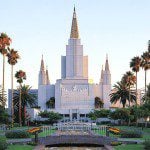Neither did the KJV enjoy official status among the Saints as a whole. Early Mormons took the familiar version for granted in many ways, but they routinely cited various translations of a given text, noting the King James rendition as but one among others (e.g., Times and Seasons 5:601 and 6:791). Orson Pratt stressed the textual limitations behind any version. For him, a translation from the original tongues was not really the word of God, and this specifically applied to the KJV.
In fact, Church leaders such as Pratt, John Taylor, and George Albert Smith went out of their way to insist that the King James translators were not inspired. Claiming no scholarly or prophetic basis for his view, Brigham Young casually guessed that, for all its errors, the Bible was probably translated about "as correctly as the scholars could get it." Yet what he sought was accuracy and truth, not loyalty to a tradition: "If it be translated incorrectly, and there is a scholar on the earth who professes to be a Christian, and he can translate it any better than King James's translators did it, he is under obligation to do so, or the curse is upon him" (JD 14:226-27). For a generation after Joseph Smith's death, the KJV was thought of as the common, not the official, Bible of Mormonism.
Antecedents to "Official" Status
This began to change in 1867-68 when the newly formed Reorganized Church, which had access to the original manuscripts, published Joseph Smith's inspired "translation" for the first time. Some Utah Mormons, like Orson Pratt, were enthusiastic about the Prophet's revision, but Brigham Young was not. Antagonism between the Utah Church and the smaller group in the Midwest who rejected his leadership led Brigham, and most of his colleagues, to suspect the new publication. Had Joseph's original work been altered? Furthermore, they reasoned, the Prophet had not been able to finish and publish his revision during his lifetime. Some now suggested this failure was providential.
As copies began to proliferate in Utah, various leaders at the School of the Prophets in Provo voiced the Church's stand against the new revision: "the world does not want this [new Bible] . . . they are satisfied with the King James translation"; "The King James translation is good enough. . . . I feel to support the old Bible until we can get a better one." This sentiment was not universal in Utah, and it was explicitly provisional ("until we can get a better one"), but it was reiterated in later years and marked the ironic beginning of a conscious stress on the King James Version.
An indirect but pervasive influence increasing the status of the KJV among the Saints was the general Protestant antipathy to Catholic immigrants. Anti-popery had long flourished in Protestant lands, but Catholics were too few and too localized in 18th-century (eastern) America to incite broad conflict. By the 1820s, however, Protestants were viewing Catholics, who before mid-century would constitute the nation's largest denomination, as a genuine threat to an evangelical America.
Mutual suspicion abounded, and many Protestants discerned conspiracy everywhere: Catholics' first allegiance was not to democracy and "the Bible alone" (a Protestant cliché), but to "Roman powers across the deep." Catholic "foreigners" simply did not belong -- never mind that Maryland had been founded by Catholics and that Catholics had colonized the American shores for a century and a half before the Puritan migration. Large numbers of Catholics seemed to undermine American freedoms. Some evangelicals, like Lyman Beecher, believed Catholics were forbidden even to read the Bible "but by permission of the priesthood." Even then, they used their own foreign version instead of the "real Bible" of "real Christians."
Quite apart from Beecher's misconceptions, Catholics were prohibited by the Council of Trent from reading the King James Version. In the 1840s, one New York priest outraged the nation's religious majority -- and heightened their KJV sensibilities -- by enforcing Trent's prohibition with excessive zeal: he collected and publicly burned the Bibles given his immigrant parishioners by one of the Protestant Bible societies. Even earlier, in the 1820s, the Catholic First Provincial Council had castigated the Protestant bias of public education -- particularly the use of the King James Bible -- and encouraged the founding of parochial schools. The issue did not fade for generations, and tensions often escalated to violence.
Thus, in restricted locales at first and across the land as the century wore on, the conscious use of the real, Christian, American, Protestant Bible -- the King James Version -- was increasingly momentous for many Americans. The KJV was still almost taken for granted, but to specifically mention it as one's own version often implied a declaration of one's Americanness and one's Christianity (which was to say, one had no Catholic sympathies).




